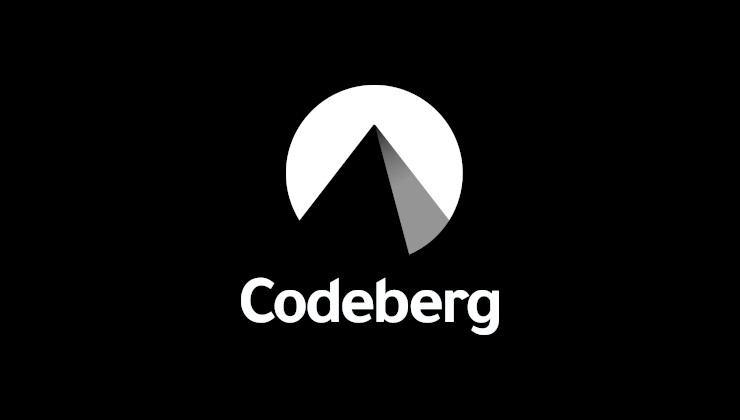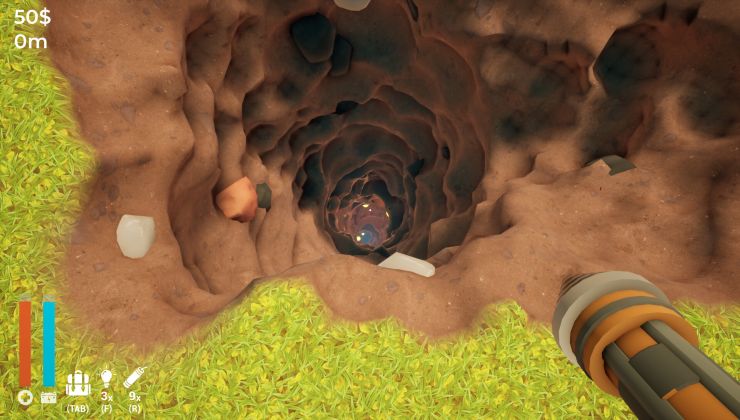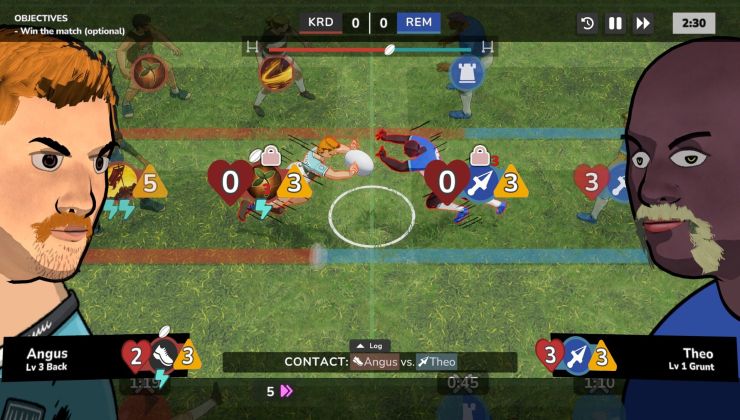KDE developer Nate Graham, who is known for writing the 'This week in KDE" blog posts keeping us up to speed on all the latest changes has a fresh update about plans for taking over the world, and Graham has some interesting things to say.
There's certainly no shortage of desktop environments on Linux and a number of ways to build software, each with their own goal and way of doing things. It's both a strength for choice and a reported weakness with so much. It's always interesting to read the point of view from developers whose work we rely on so much in the FOSS community. Especially when Graham came from a background in working with Apple, while now a KDE developer.
Here, it wasn't quite what I expected to read. The post goes over talking about the market leaders like Windows and Android, noting neither was the first to come to market but they've successfully captured the biggest slices. Noting that "Neither is picky about what kind of software you run on them or write for them, so they are used on a wide range of devices by lots of different people. Both work with others in adjacent industries, rather than taking a 'my way or the highway' approach. They are flexible."
The flexibility, Graham thinks, is the key to success.
Comparing KDE to Apple, they're clearly very different in how they do things explaining that "we’ve always dreamed of a broad scope and being useful for everyone" on why the Plasma desktop is so flexible and why "the Steam Deck handheld gaming console, PinePhone smartphone, and JingPad A1 tablet are built on top of KDE technology".
Some interesting words aimed at two other big names in the Linux space too, with Graham's post mentioning "So I think ultimately we will become the Windows or Android of the Free Open-Source Software world, with projects like GNOME and ElementaryOS competing to be the Apple of FOSS". You could easily take that as putting them in the firing line but it's more positive than that as Graham continues "I think there will absolutely be room for projects like theirs; in fact I think it’s highly likely that they’ll offer a better user experience than we do for people who fit within the usage paradigms they focus on–just like Apple does".
It's part of why I ended up moving from GNOME to KDE myself, that flexibility of setting it all up how I want it to be, not how designers think it should be. I cannot see myself moving away from Plasma as my own desktop environment on Linux any time soon. Looks good, works well and doesn't get in the way of gaming.
What are your thoughts? Will KDE and Plasma become the biggest players? Going by our own stats from users, Plasma is currently on top but GNOME is not far behind at all.
Nathan Graham has done well for the KDE Project and highlights in his blog a crucial idea for maturing all FOSS desktop environments. We need both a "KDE"-like project and a "GNOME"-like project. What he means is that one project strives to cast a wide net which encompasses as many use cases as possible (like Android and Windows are today). The other project focuses hard on a very refined and narrow vision to create a premium product, one that could only exist if the variables are tightly controlled (iOS and MacOS being the example here). As of Q4 2021, these are KDE and GNOME respectively and this is a good thing. They might not always hold their crowns, but for now it helps to give rapidly developing FOSS world a bit more form. Just my $0.02 USD.
Last edited by Numeric on 15 Nov 2021 at 2:45 pm UTC
I love the freedom to choose the least customization but most streamlined DE. GNOME has all the defaults I work most efficient with. (I alternate between on 5 Linux machines and prefer to spend my time on other things. I pretty much don't customize anything or therefore don#t need to do any "automatic" synchronization or overhead alike.)
But I can also also see that others prefer to customize their setup to a high detail. I used to enjoy that a lot too. And I'm glad you can with KDE!
Welcome to Linux.
I'm not saying KDE Plasma is bad or that it will never be popular on smaller devices. I just don't think this guy makes a very good case.
Also, a developer thinks their project's approach is better than that of competing projects? Oh my...
Since it's KDE based and Kwin is being maintained by at least one guy contracted by Valve, I expect the same to be true, when SteamOS 3.0 will release (which I will absolutely switch to, on my main gaming rig, at least).
Edit:
And I really do think that the Steam Deck success will be a side effect driving factor, for KDE. We might see Windows users switch to SteamOS, on their gaming rig, to reflect what they get on their Steam Deck.
Last edited by Mohandevir on 15 Nov 2021 at 3:00 pm UTC
I think it was the last round of Nautilus removals that pushed me over the edge. Sure, there was always Nemo if I couldn't handle it any longer, but I have to say Dolphin is an absolute joy to work with.
Gotta love the choice Linux gives you.
It's part of why I ended up moving from GNOME to KDE myself, that flexibility of setting it all up how I want it to be, not how designers think it should be.
It also helps that the designers in KDE know their stuff. The default Breeze theme is really great, and since migrating to KDE several years ago I never bothered to change the theme.
Somehow I doubt that it's the flexibility of the UI/UX that made Windows and Android successful. It certainly was never a big selling point for Windows.While it's not their main selling point, I think Windows is quite flexible, at least for ordinary people:
- User can change the theme and wallpaper.
- There are no shortage of applications for Windows, and the installation can be done really easy.
- All hardware are compatible with Windows.
- Windows has a good backward compatibility, so even app from 30 years ago still usable and perfectly running in Windows 10 (my dad for some reasons hate Excel and still uses Lotus 123).
Also, a developer thinks their project's approach is better than that of competing projects? Oh my...Isn't that ... normal?
I mean why would developers make a new competing project if they thought that the old approach are good enough. Thanks to this we have so many competing distros and JS frameworks, which honestly pretty annoying but give us freedom to choose.
Went through quite a number of distros before I ended up on Manjaro, which comes with Plasma by default.
One thing, however, bothers me to no end. Plasma is good, flexible and all, but on laptops has been (until VERY recently) a mess with multimonitor and dock/undock while running.
And not all problems have been solved. For such a venerable, well developed and successful piece of software, some of its (historical!) shortcomings are quite disappointing.
Fortunately, lots of skilled people keep working on that, and I'm sure this will soon be a distant memory. But still, a painful one.
Maybe the Deck will change my mind. So far, Cinnamon and MATE are the only DEs I know that look good by default, have the panels where I want them and allow enough customization to make them my own. KDE has a lot of great apps though and I’m glad I can use them on other desktop environments.
Because users are more appealed by few working features than tons of "look I'm the first to do it but you cannot use it for at least 2 years" features.
Last edited by Bogomips on 15 Nov 2021 at 4:16 pm UTC
Only the first point applies to a DE as opposed to the underlying operating system, and every DE allows you to change themes and wallpapers.Somehow I doubt that it's the flexibility of the UI/UX that made Windows and Android successful. It certainly was never a big selling point for Windows.While it's not their main selling point, I think Windows is quite flexible, at least for ordinary people:
- User can change the theme and wallpaper.
- There are no shortage of applications for Windows, and the installation can be done really easy.
- All hardware are compatible with Windows.
- Windows has a good backward compatibility, so even app from 30 years ago still usable and perfectly running in Windows 10 (my dad for some reasons hate Excel and still uses Lotus 123).
That was my point. :)Also, a developer thinks their project's approach is better than that of competing projects? Oh my...Isn't that ... normal?
User can change the theme and wallpaper.
There are no shortage of applications for Windows, and the installation can be done really easy.
All hardware are compatible with Windows.
Windows has a good backward compatibility, so even app from 30 years ago still usable and perfectly running in Windows 10 (my dad for some reasons hate Excel and still uses Lotus 123).
Your Dad must be using a fairly rare version of 32-bit Windows 10 then, otherwise, there's quite a few problems trying to get Lotus 123 running on that platform. It apparently ran well on Win 7, so maybe your Dad did an in-place upgrade?
That's a strength, and also a core weakness of Windows. Yes, old programs often work well. But that comes at the cost of enormous bloat, and backwards compatibility choking off future innovation.
Also, try running some old games on Windows 10 and you'll often be out of luck, oddly enough. You're likely going to have an easier time on Linux!
Plasma can do everything I need it do, while also being responsive on my hardware. Breeze (Dark) is an excellent default theme, and honestly, I use mostly Qt applications so being in Plasma-land just makes sense for me.
-A lot of mmorpg games claimed that would be the "WoW killers" and some of them are not active anymore today
It's great to see developers excited and enjoying their well deserved recognition, but I really hope that Nate and the rest of KDE developers keep their feet on the ground and don't let the spotlight of steam deck blind them from reality.
KDE is an awesome DE but there are others that are awesome too, and maybe if linux gets more traction between average users, some company may invest in a new DE that could use the best concepts of the existing ones + improve them and suddenly start to swallow the market share. Even System 76 may be onto something with their announced "Rust based DE", who knows...
So I really hope they keep their main goal of improve the existing things rather than take step bigger than the leg, this includes boring tasks like polishing corner cases and fixing high complexity bugs.
Even so, congratulations for all the KDE developers for their awesome work
...and an MTP integration that can be used more than once per session
It works for you once in a session? Does not work for me at all :D.
There needs to be a Desktop Environment that is somewhere between the Good defaults, but not a lot of customization of Gnome, and Okay defaults, with too much customization of KDE.
KDE's settings are still all over the place, and feel like there are some which just aren't useful to 95% of the population, but that 5% left are coders that don't want to clean it out.
Also, Evolution is still a much better Outlook replacement than Kmail. KDE has some really good things about it. But at the same time it's a bit too much like Windows, and when moving away from Windows and the way it works, I'd rather move to something that diverges from it a bit.
Though the same could be said of Gnome with the Mac. There are things that work similarly between the two. Though in defense of Gnome, Nautilus is WAY nicer than Finder...
I still wish Enlightenment was capable of releasing a full DE, with associated applications so you wouldn't have to mix in GTK/QT applications to get a light weight, but shiny experience!
Does KDE still have all those large, ugly desktop widgets that were still around a couple of years ago when I last checked it out?












 How to set, change and reset your SteamOS / Steam Deck desktop sudo password
How to set, change and reset your SteamOS / Steam Deck desktop sudo password How to set up Decky Loader on Steam Deck / SteamOS for easy plugins
How to set up Decky Loader on Steam Deck / SteamOS for easy plugins
See more from me